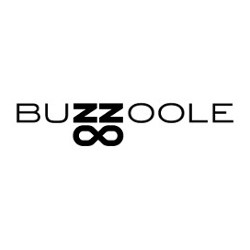Marketers and audiences alike have been captivated by influencers on social media. Who doesn't want recommendations from trustworthy sources? And what brand doesn't want to be the one recommended by influential social media users?
Word-of-mouth works, and influencer marketing has proven its worth on a wide range of channels and platforms—the latest of which is social media.
Despite its current popularity, the increasingly crowded and convoluted influencer marketing space is facing some big challenges. It's not just an ad hoc marketing experiment anymore. Marketers and brands are starting to think about influencer marketing in a more strategic way, and they are demanding more from their partnerships: more transparency, more accountability, and better education overall.
Influencer marketing platform Buzzoole teamed up with the Drum to survey 200 senior marketers for their insight on the state of influencer marketing in the US and UK.
The resulting report highlights some of the biggest challenges and opportunities in influencer marketing. Here are five key takeaways for marketers.
1. Budget and Strategy Accountability
An important step toward improving the strategic value of influencer marketing is establishing clear responsibility. According to the report, only 1 in 10 companies has a dedicated influencer marketing team. Less than half of the polled executives said influencer marketing should be included in the general marketing budget, and even fewer said their marketing teams were responsible for influencer strategy.
As more brands move toward a more strategic influencer focus, we might see the rise of dedicated teams within the marketing department tasked with managing influencer campaigns, budgets, and relationships.
2. Transparency Both for Businesses and for Consumers
The social media influencer marketing space has exploded—with agencies, ad-tech companies, and publishers all vying to get a piece of the pie. Unfortunately, that proliferation of tools, tech, and consultants has done little to reduce the overall confusion around influencer marketing.
But as brands work to build better influencer strategies, they are also seeking education on best-practices, influencer pricing for brands, and the rules of the game. In fact, brands and audiences alike are calling for more transparency and more accountability in the influencer space: Consumer audiences want more insight into the ways brands are using influencers; brands want more useful historical data about influencer performance.
3. Fake Followers and Lost Confidence
And that leads us to the issue of influencer fraud. According to Buzzoole Chief Commercial Officer Ian Samuel, the industry obsession with reach has driven the rise of fraud and fake followers.
Indeed, a recent report from the New York Times found that dozens of TV personalities and athletes were customers of companies that specialized in inflating their social media status through the use of fake followers. Those dishonest practices have resulted in a crisis of confidence in the industry.
Samuel says the solution is to make the industry more transparent through more effective measurement and to change the definition of success.
4. Turning Influencers Into Advocates
The survey results suggest a strained relationship between brands and influencers. Although brand affinity and creator authenticity are crucial for marketers, less than one-third said they trust influencers to create content.
Many marketers still want to control and double-check influencer content before it goes live, and some even want final approval. Moreover, most of the marketers surveyed said they prefer to work with a handful of influencers to get their message out.
Having the right tools for vetting and identifying high-impact influencers could help alleviate some of the tension between marketers and influencers. Perhaps more important is that brands build confidence by developing relationships with influencers over time.
With better brand/influencer relationships, influencers can create more authentic messages that brands and consumers alike can trust.
5. Data and Accountability
Brands are happy enough to invest in influencer marketing, but when measuring effectiveness there's a lack of trust .
One of the biggest challenges in that area is having access to the right tools. In fact, 42% of survey respondents have yet to find the right tool to measure the effectiveness of their influencer campaigns. What's more, respondents also said measurement is the biggest barrier for implementing effective campaigns and increasing the influencer marketing investment.
Marketers also have different ideas as to what really matters. Is it traffic? Sales? Shares? Impressions? Some say all of the above. Still others say it depends on the campaign goals.
Ultimately, what marketers need are the right tools for gathering the right data, and they need to use that data to enhance and inform influencer strategy.
* * *
Asked how their influencer marketing budgets would change over the next year, nearly 30% of respondents said they expect their budgets to increase. However, the same amount said there needs to be more testing before increasing the budget.
That points to a future that favors brands and marketers that invest in better technology solutions. Indeed, the report concludes that technology is the key to improving confidence and allaying fears.
With better tools for reporting and measurement, for content control, and for increased transparency overall, the influencer marketing space will continue to grow and flourish.
Download the full report for more insights.




